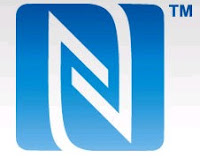About NFC
Near Field Communication (NFC) technology makes life easier and more convenient for consumers around the world by making it simpler to make transactions, exchange digital content, and connect electronic devices with a touch.
Near field communication (NFC) is a set of standards for smartphones and similar devices to establish radio communication with each other by touching them together or bringing them into close proximity, usually no more than a few centimetres.
Near field communication (NFC) is a set of standards for smartphones and similar devices to establish radio communication with each other by touching them together or bringing them into close proximity, usually no more than a few centimetres.
Present and anticipated applications include contactless transactions, data exchange, and simplified setup of more complex communications such as Wi-Fi. Communication is also possible between an NFC device and an unpowered NFC chip
NFC Features and Benefit
- Intuitive: NFC interactions require no more than a simple touch
- Versatile: NFC is ideally suited to the broadest range of industries, environments, and uses
- Open and standards-based: The underlying layers of NFC technology follow universally implemented ISO, ECMA, and ETSI standards
- Technology-enabling: NFC facilitates fast and simple setup of wireless technologies, such as Bluetooth, Wi-Fi, etc.)
- Inherently secure: NFC transmissions are short range (from a touch to a few centimeters)
- Interoperable: NFC works with existing contactless card technologies
- Security-ready: NFC has built-in capabilities to support secure applications
A standards-based connectivity technology, NFC harmonizes today's diverse contactless technologies, enabling current and future solutions in areas such as:
- Access control
- Consumer electronics
- Healthcare
- Information collection and exchange
- Loyalty and coupons
- Payments
- Transport
Developers can learn more about NFC in the section on interoperability.

No comments:
Post a Comment